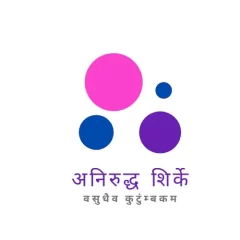Myanmar, a Southeast Asian nation with a rich cultural heritage, has faced significant healthcare challenges over the years. Lack of funding, geographic limitations, and a burgeoning population have all impacted the nation’s healthcare infrastructure. However, in recent years, there has been a promising development in the form of Healthcare Clinics and Mobile Medical Units (MMUs), aimed at improving healthcare accessibility for the underserved population. This article explores the need for these initiatives, its current scenario, the concept of a “Hospital on Wheels,” the social and humanitarian aspects, public-private partnership (PPP) projects, and government support towards achieving universal healthcare in Myanmar.
The Need for Healthcare Clinics and Mobile Medical Units
The varied environment of Myanmar, which includes some inaccessible and off-limits regions, is well-known. These geographical challenges have resulted in a significant healthcare divide between urban and rural populations. The majority of healthcare facilities are concentrated in urban centers, leaving rural areas with limited access to medical services. This glaring disparity in healthcare access has fueled the need for innovative solutions such as Healthcare Clinics and MMUs.
Current Scenario
Several difficulties characterize Myanmar’s healthcare system as it stands today. The healthcare infrastructure, although steadily improving, remains underdeveloped, especially in remote regions. Limited financial resources and healthcare workforce shortages exacerbate the problem. In response to these challenges, the Government, non-governmental organizations (NGOs), and private enterprises have started to invest in Healthcare Clinics and MMUs as a means to bridge the gap.
The Concept of ‘Hospital on Wheels’
“Hospital on Wheels” refers to a mobile medical unit equipped with essential medical equipment and staffed by healthcare professionals. It is designed to provide a range of healthcare services. It includes basic check-ups and vaccinations to emergency care and minor surgeries. The concept is particularly valuable in Myanmar, where the terrain makes it difficult for people in remote areas to access healthcare facilities. These mobile units can reach the most underserved populations, providing much-needed medical assistance.
Social Humanitarian Projects
Healthcare Clinics and MMUs in Myanmar serve not only as medical facilities but also as social and humanitarian projects. They embody the principles of healthcare equity and social responsibility by ensuring that even the most marginalized communities receive essential healthcare services. These initiatives prioritize vulnerable populations such as children, pregnant women, and the older people, reducing health disparities and improving overall well-being.
Public-Private Partnership (PPP) Projects
To address the complex healthcare challenges in Myanmar, PPP projects have emerged as a promising solution. Collaborations between the government, NGOs, and private enterprises have played a pivotal role in establishing and sustaining Healthcare Clinics and MMUs. Private sector involvement brings in expertise, technology, and funding, while the government provides the necessary regulatory framework and access to underserved regions. These partnerships ensure the efficient delivery of healthcare services to those in need.
Healthcare for Everyone
The ultimate goal of Healthcare Clinics and MMUs in Myanmar is to provide healthcare for everyone, regardless of their geographical location or socio-economic status. By extending medical services to remote areas and marginalized communities, these initiatives contribute significantly to achieving universal healthcare coverage, a key objective outlined in the Sustainable Development Goals (SDGs).
Government of Myanmar Support
The government of Myanmar has recognized the importance of Healthcare Clinics and MMUs in improving the nation’s healthcare landscape. In recent years, there has been increased support for these initiatives through policy reforms and funding allocation. The government’s commitment to expanding healthcare access, especially in rural areas, is a positive step towards addressing the healthcare disparities that have plagued the country for decades.
Conclusion
Healthcare Clinics and Mobile Medical Units in Myanmar represent a beacon of hope for a nation that has long struggled with healthcare inequalities. These initiatives, driven by the concept of a “Hospital on Wheels,” embody social and humanitarian principles, foster public-private partnerships, and work towards the goal of healthcare for everyone. With the support of the Government and various stakeholders, Myanmar is gradually moving closer to achieving universal healthcare coverage and ensuring that no one is left behind in the journey towards better health and well-being.

